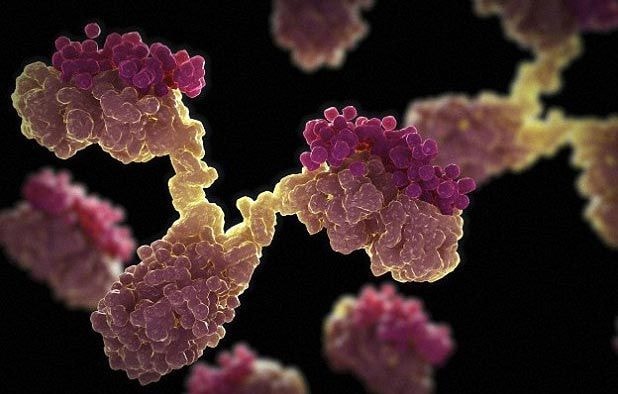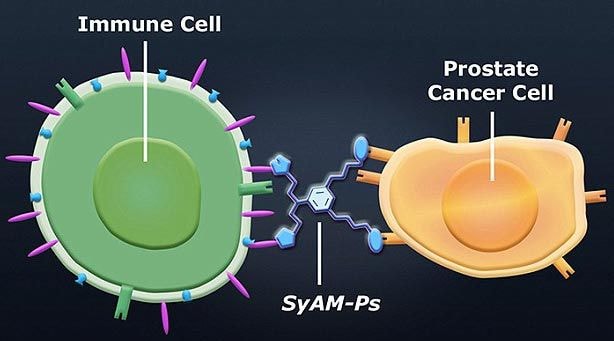Introducing the world's first artificial antibody
American chemists have just introduced the world's first artificial antibodies that can adhere to disease-causing cells and help direct the body's immune system to fight them.
 |
| Natural antibodies are Y-shaped proteins (as shown) that patrol the body to detect disease. Photo: Daily Mail |
Artificial antibodies from a research team at Yale University (USA) have simulated the action of natural antibodies, which bind diseased cells and bacteria into the blood, then encourage white blood cells to destroy them.
The artificial antibodies, which can be stored at room temperature, could offer new and convenient treatments for a wide range of diseases, including infections, cancer and HIV, the inventors claim.
These molecules could be used in pill form as painkillers or antibiotics, added Dr. David Spiegel, a chemist involved in developing the artificial antibodies. He and his colleagues used them to create an artificial molecule that attacks prostate cancer.
"Unlike natural antibodies, our molecules are synthetic organic compounds that are approximately 1/20th the size of natural antibodies. They are less likely to cause unwanted immune reactions due to their structure. They are also heat stable and have the potential to be administered orally, like traditional small molecule drugs," Dr. Spiegel explained.
 |
| The research team used artificial antibodies SyAM-Ps that adhere to antigens on the surface of prostate cancer cells, before connecting with white blood cells from the immune system to destroy diseased cells. Photo: Daily Mail |
Doctors have used antibodies to treat human diseases - monoclonal antibody therapy. This is essentially a form of immunotherapy, using natural antibodies that are produced from cells grown in the laboratory. However, these antibodies tend to be large molecules, sensitive to temperature changes and need to be stored carefully.
Because of their large size, these antibodies also need to be administered by injection. They work by marking diseased cells and forcing the immune system to destroy them.
In the human body, natural antibodies are Y-shaped proteins produced by white blood cells in the blood, in the billions. Each molecule contains structures that attach to unique molecules called antigens on the surface of foreign cells, helping them recognize cells that do not belong to the body.
By clumping together around invading cells, antibodies can neutralize them, while also attracting white blood cells from the immune system to destroy the threat later.
The artificial antibodies SyAM-Ps developed by Dr Spiegel's team do the same thing. However, they are only 1/20th the size of natural antibodies, meaning they can pass through the intestinal wall. They can therefore be administered as pills, rather than injections.
The SyAM-Ps have only been used against cancerous tissue in the lab so far, but the researchers hope to test them in animals soon. If successful, it could lead to clinical trials in humans within a few years.
According to Daily Mail

.png)






